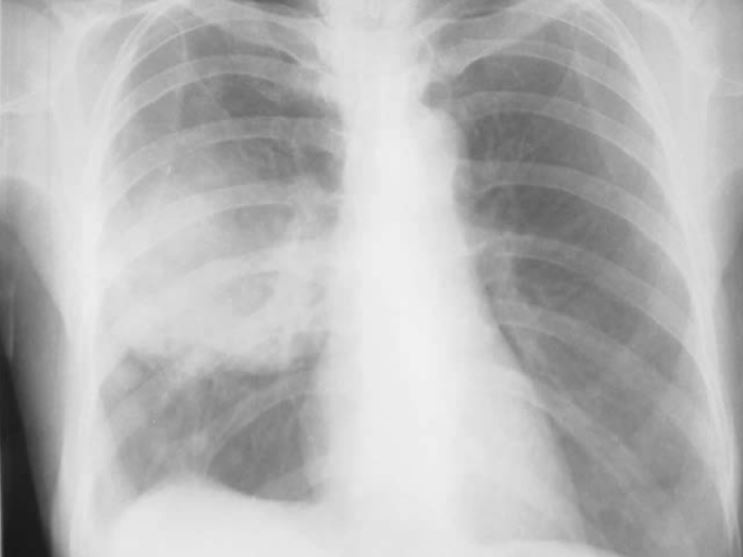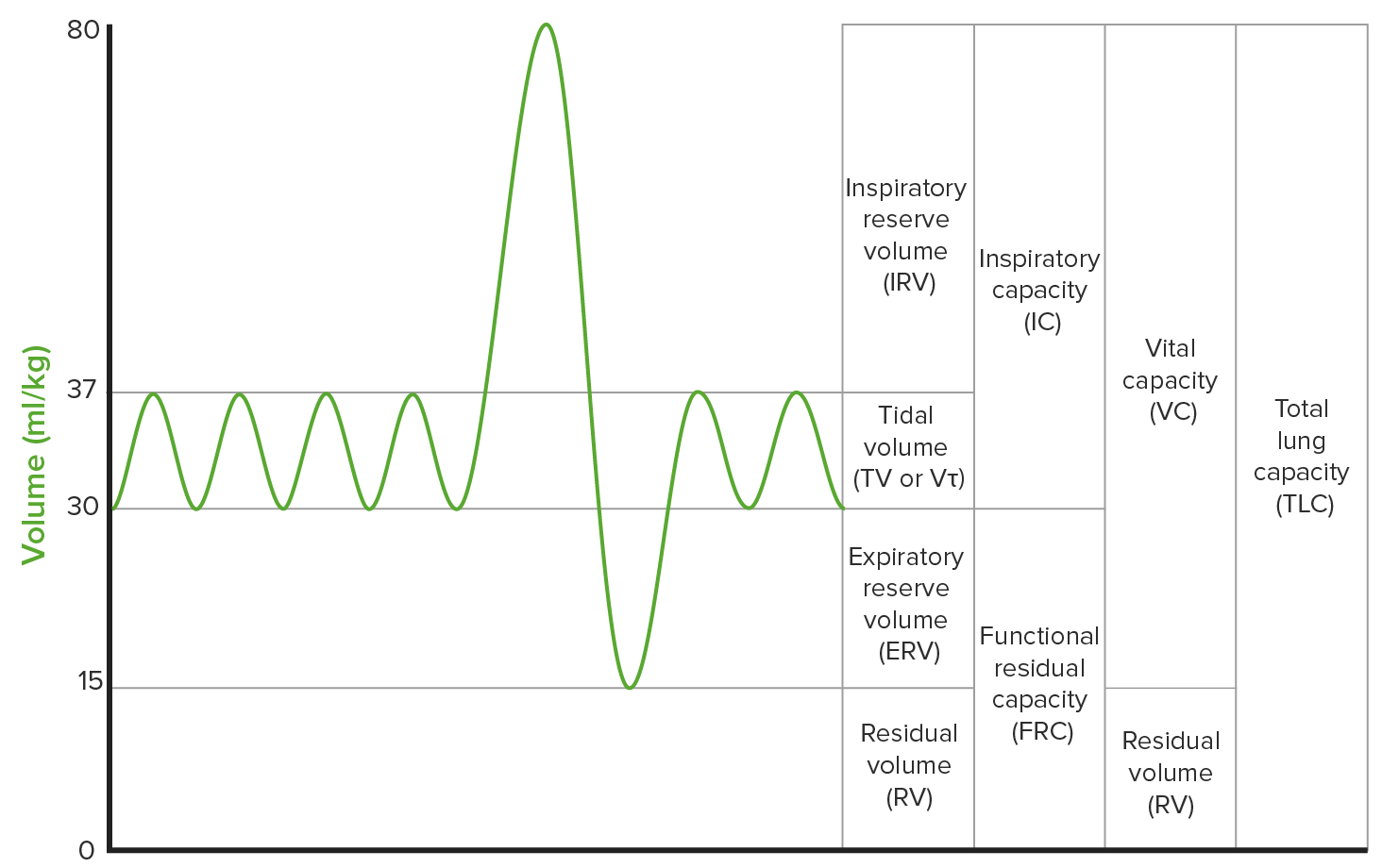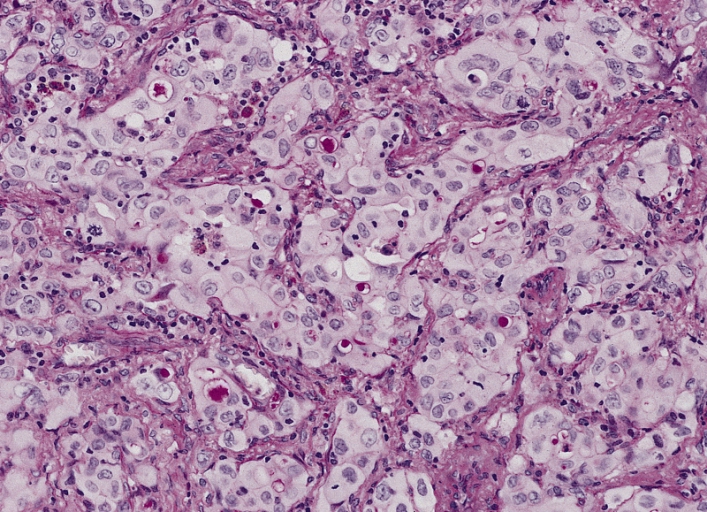Playlist
Show Playlist
Hide Playlist
Paraneoplastic Syndromes
-
Slides 07 LungCancer Tumors and Metastases Neoplasias RespiratoryAdvanced.pdf
-
Download Lecture Overview
00:00 So as well as metastases which have spread to different organ or different parts of the body causing symptoms. Lung cancers can also cause what we call paraneoplastic syndrome. These are effects that are distal to the actual initial cancer. But are not associated with actual lumps of cancers somewhere else in the body. They are normally caused by ectopic hormone production or autoantibodies. And there's quite a range of potential paraneoplastic syndromes, that are associated with lung cancer. Perhaps the commonest would be the systemic disturbance the anorexia, the cachexia that we have already described. In addition patients are in a risk of DVT and clots such as pulmonary emboli due to hypercoagulability which is commonly associated with all cancers. Patients with cancers often have anemia of a chronic disease. Lung cancer can be associated with some quite unusual dermatological conditions such as gynaecomastia, acanthosis nigrans, and dermatomyositis which are not known but we are going to describe in detail today. For the two main categories of lung cancers non-small cell and small cell lung cancer. There are some very specific hormonal type paraneoplastic syndromes. So for example small cell lung cancer can cause what we call SIADH which is inappropriate production of antidiuretic hormone and that retains water causing a dilutional hyponatremia, which in itself is asymptomatic until the sodium gets below of about 120. 01:33 On which point the patient starts to become confused and when it gets down to around a 110, the patient may have coma, seizures and even could die. 01:43 Small cells are also associated with Cushing’s syndrome and that is due to an excessive production of ACTH (the type of hormone) by the tumour causing excessive corticosteroid production by the bodies and adrenals. And will presents with the Cushingoid appearance and muscle weakness. There are some neurological problems which are associated with small cell cancer. Eaton Lambert Syndrome is the commonest and the best way of thinking about that is a sort of myasthenia gravis but associated with cancer it's a muscle, motor nerve junction problem and there are range of neurological conditions which sometime occurs in patients with small cell cancer cerebellar syndrome, cognitive dysfunction, and neuropathies etc. Non-small cell cancer, actually clubbing is probably the most common paraneoplastic syndrome. That occasionally can be severe enough to cause something we called hypertrophic pulmonary osteoarthropathy. This is where the clubbing is associated with periosteal reaction of the distal long bones of the arms and the legs. So they are very painful and swollen tender wrists and ankles as well as where there's marked clubbing. Hypercalcemia, high calcium production is also specifically associated with squamous cell carcinomas and that produces symptoms of polyuria, polydipsia, confusion and hyperreflexia.
About the Lecture
The lecture Paraneoplastic Syndromes by Jeremy Brown, PhD, MRCP(UK), MBBS is from the course Lung Cancer.
Included Quiz Questions
Which type of anemia can be seen in patients with lung cancer?
- Anemia of chronic disease
- Iron deficiency anemia
- Megaloblastic anemia
- Dimorphic anemia
- Pernicious anemia
Which component of the Virchow triad can be caused by a paraneoplastic syndrome?
- Hypercoagulability
- Venous stasis
- Endothelial injury
- Endothelial injury and stasis
- Arterial stasis
Which of the following electrolyte disturbances can be associated with small cell lung cancer?
- Hyponatremia
- Hypernatremia
- Hyperkalemia
- Hypocalcemia
- Hypercalcemia
Which of the following paraneoplastic syndromes is NOT usually associated with small cell lung cancer?
- Hypercalcemia
- SIADH
- Cushing syndrome
- Eaton-Lambert syndrome
- Neuropathy
Which type of lung cancer is often associated with hypercalcemia?
- Squamous cell lung carcinoma
- Small cell lung cancer
- Bronchioloalveolar cancer
- Large cell lung cancer
- Adenocarcinoma of the lung
Customer reviews
5,0 of 5 stars
| 5 Stars |
|
5 |
| 4 Stars |
|
0 |
| 3 Stars |
|
0 |
| 2 Stars |
|
0 |
| 1 Star |
|
0 |






